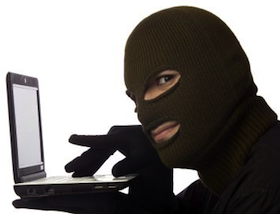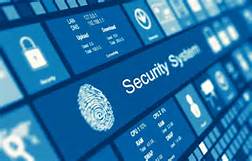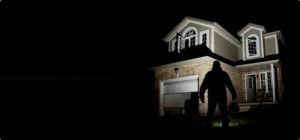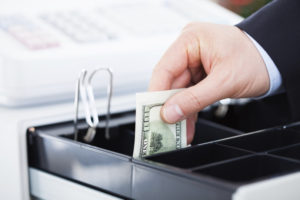Locksmithing services
Residential
Keys & Locks for Cars
Commercial
Emergency Rekeys & Lockouts
Happy customers
"Broke a key to my car. I was desperate as had an important meeting. Fortunately, guys from Midway solved this problem in less than an hour."
Kevin Garnett"Lost a key to the front door and couldn't find them anywhere. I've contacted the company and they changed all locks pretty fast."
Bruce Delaney"Thanks for fixing and changing the locks at my new apartment. Very professional service and good prices."
John MondaleComputer Security – How to Create and Protect a Strong Password.

A strong computer password to restrict access to your computer system from unauthorized access is vital to your business security. Your password is your first line of defense, and should be taken very seriously: The last thing you want is to compromise your data, your company secrets, and your clients’ confidential information. Once someone accesses your computer, they may now be able to access your bank accounts, credit cards, Social Security number and other information that you do not want others to have. A strong password must be difficult for a hacker to figure out, must be changed often, and must be kept in a safe place where no-one else may find it.
A good password must contain at least eight characters, must include UPPER CASE and lower case letters, and must contain several numbers. You should also use special characters – such as @ $ % ^ &. Many systems can handle a twelve-character password, which is that much more secure.
Never use real names, dates, English words, or anything like addresses, date of birth, kids’ names or anything that can be figured out by a hacker who might sift through your garbage for clues. If your name is Stephanie and you were born in 1980, the dumbest password you could create would be “Stephanie1980”. Any smart hacker will be able to figure that one out in minutes. Hackers have programs which contain every word in the dictionary, as well as variations on English words. All they need is time. So make it as hard for them as possible.
Here is an example of a strong, effective password that is very difficult for an intruder to hack:
Bg65R@dE&7bL
Generate a strong password like the one above. Note that this password contains at least one or more of the following:
- Upper Case Letter
- Lower Case Letter
- Numerical Character
- Special Character
Give this password only to those who need it, and make sure it isn’t left lying around where people could see it. Never stick it to the monitor or under your keyboard. If you can’t remember your password, write it down and carry it somewhere safe – like your wallet. And don’t write: “This is the password for the computer in the office”. Even if somebody finds it, they should not know what this password is for. A good trick is to write down your password backwards, making it that much harder for someone finding it to figure it out. If you lose your password (or the wallet that it’s in) change the password immediately.
Even if your password is strong and might not be able to be figured out by a hacker’s computer program, there are many other ways for someone to access your password. “Phishing” scams use an official-looking and urgent-sounding email to get your attention and try and get you to send them your password or other confidential information. These emails look as if they come from your bank, your Internet service provider, or even the IRS. They ask you to log on to a site to change a password, provide bank account information, or give your Social Security number. Once you respond, the hacker clears out the funds in your bank account before you know it. Never respond to such requests for this type of information. And inform your employees about this danger and warn them not to open or respond to any suspicious or doubtful emails. If you are not sure about the legitimacy of an email request from an outfit where you do have an account, call the bank or whatever organization seems to be represented in the request for information, and check to see if they did in fact sent you the email. Don’t take chances.
Another way people can access your password is by “shoulder surfing” – a person looks over your shoulder and watches you enter your password. This can be a real problem if you are doing work in a location other than your office – say, at your local Starbucks. Try and enter your password as quickly as you can: if possible, enter it without looking at the keyboard. Shoulder surfing can easily be done when you use a computer in a public place like Internet cafes or the library, where hackers lurk with the express intent of watching for people who might enter their passwords where they can be seen by others.
When you have finished using a computer in a public place, make sure you log off. This must always be done, even if you are using a friend’s computer in a private, relatively secure place.
And your password must be changed often. Given enough time, almost any password can be figured out. Some companies change passwords every week. At most, change it every few months. Every time you change your password, switch between the uppercase and lowercase letters and switch the positions of the numbers and the letters. Avoid creating a pattern where after a while a hacker can figure out your new password based on your old ones.
If you have to terminate (fire) an employee who has had access to one or more of your passwords, you must change these passwords immediately.
In the end, all security is dependent on awareness. Keep your eyes open, don’t be careless, and don’t try and be smart. Follow the simple rules outlined here, and always try to bear in mind that your confidential information is ALWAYS going to be at risk. The best you can do is to be alert and vigilant.
For a broader survey of password secrets, visit this site at Symantec one of the leaders in cybersecurity: http://www.securityfocus.com/infocus/1192

You may also be interested in looking into some additional computer protection systems beyond a mere password. Today, you have the option to install a computer security system which reads voice, fingerprints or even your eye. These may cost more money but are very effective.
Home Security – Protect Your Family
Your home is the biggest investment you will likely ever make. Home security is vital. Once you buy a home, there is one more serious investment you will have to make – home security. If you take certain precautions and make some investment, you can make your home a comfortable and safe place – when you and your family are home, when you are away but the kids are home, or when the entire family is away from home.

The FBI reports that 65% of all burglaries are residential. The Washington Post tells us that the average loss per burglary is $1,725. When attempting to make your home secure, consider these basic issues:
Secure The Perimeter
There is an old saying: “Good fences make good neighbors”. A secure fence, hedge or wall must completely surround your property. No-one should be able to walk onto your property unhindered. If you keep your gate open during the day, close it at night. An open gate is an invitation to enter your property.
Check All Your Doors
All doors must be securely fastened on their hinges, must have a strong, secure, dead-bolt locked from the inside, and a strong, secure lock on the outside. A peep-hole is a good idea, so you can see who is knocking. An audio intercom is also good so you can talk to your visitor before admitting them. If you have a surveillance system (see below) you should have one camera trained on the door so you can also see your visitor before admitting them.
Check All Windows
All windows must be lockable from the inside. If a window pane breaks, repair it immediately. Never leave downstairs windows open when no-one is home. Hang net curtains in front of windows to prevent people from seeing into the house during the day, heavy drapes are necessary to prevent anyone from seeing in at night. Always draw the drapes at night, whether you will be home or not.
Install a Burglar Alarm System
A burglar alarm is a very good idea. Engage a company that provides armed response or whose alarm signal goes directly to the police. Use only reputable companies: check the signs on your neighbors’ fences and ask neighbors or friends for a recommendation.
Lighting Reduces Crime
Light every area of your property. A well-lit yard deters intruders. Install motion detectors to activate lights automatically when someone enters the area. Attach night sensors so lights come on automatically when it gets dark, even (especially) if you are not home. Interior lights can also be set to come on at sunset or at a certain, predetermined time. Always make it look like there is someone home.
Install Surveillance Cameras
These are increasingly becoming a necessary part of home security. A good system will be able to capture video even in very low light, and you can keep an eye on your home from anywhere over the internet. DVR systems can record up to three months’ of video. If you want to use your surveillance video to prosecute somebody, you must place signs on your property to the effect that the property is under video surveillance. If you do not intend to use the video to prosecute anyone, you do not need to post any warning signs.
When you are away for the evening: If you are going out for the evening, or you know you will not be home by dark, follow some basic procedures and you will be OK. Turn on strategic interior and exterior lights (or set them to come on with timers or motion detection), lock downstairs windows, draw curtains, leave TV or radio on and ALWAYS make it look like there is someone home. And remember to lock the door before you leave. If you are leaving kids with a babysitter, make sure everyone knows where you are going, when you will be back, and how to reach you. These days with cell phones it’s easy.
Hide Your Valuables
Most people store valuables in their home. The most common hiding places are the bedroom dresser drawer, the closet, and the freezer. Guess what? According to the FBI, these are the first places that burglars look for valuables. These valuables can be easily stolen by an intruder. It is important to hide your valuables in places where they will be harder to find. A safe is the best place to store your valuables. Another good place is a safety deposit box at your local bank.
When You Are Out of Town
When you leave town: if you go out of town for more than one night, have a neighbor, relative or friend remove your mail and newspapers. Nothing screams “Empty Home” like piles of mail and newspapers by the front door or in the driveway. Ask this same person to check up on the place a couple times a day if possible. Some communities provide police drive-by inspections of unoccupied properties, so inform your local police before you go away. Also, make sure you inform your alarm company that you will be out of town – many alarm response services provide a patrol option: for a fee, they’ll come by several times a day and check that everything is okay and there have been no attempts at breaking or entering. Forward your home phone to your cell phone or someplace else where it can be answered. One of the best ways for a burglar to check if anyone is home is to call the home phone a number of times: if there is no answer, chances are there is nobody home.
Use Common Sense:
There are other things you can do to make your property more secure. Avoid leaving valuables lying where they can be seen from a window. Lock your car and park it in the garage. Never leave the front door key under the mat: if you leave a key for someone, tell them where you hide it and put it somewhere where it cannot be seen from the street. Leaving a key with a trusted naighbor is also a good idea. If you keep your wits about you and take these precautions, your home should be a safe and secure place.
Sources:
Washington Post Burglary statistics

Your Employees Are Stealing From You
Most theft against businesses is committed by employees of those businesses. Although a business may set up intricate systems of security to reduce employee theft, the most effective method for preventing employee theft is the installation of video surveillance cameras throughout the business.
After you install surveillance cameras, you will notice a marked difference in the behavior of your employees: they know they are on camera and they will change their behavior immediately. When they know they âre being videotaped, store clerks become more polite to customers, kitchen staff observe higher Health Department standards, and cashiers know that a camera is watching them every time they open the cash register. This has an immediate effect on your customer service and on your bottom line.
Video surveillance systems are now an essential element of business security. They are affordable and easy to install, and new allow you to zoom, pan and tilt your cameras from a remote location, to view your cameras from anywhere in the world via the Internet, and even to see clearly in total darkness.
Surveillance cameras should be placed everywhere your employees are throughout the business premises. Make sure that entrances and exits are well-covered, as well as hallways, common areas as well as private ones. Be sure to place good cameras over cash registers, safes, and the main computer server. Do not forget to place them in places like break-rooms and kitchens. People change their behavior when they know they are being watched. It’s like having a supervisor everywhere.
Post Warning Signs
If you intend using as evidence the footage you are recording, the law requires you to post signs that people are being recorded. “Smile, you are on camera” or “Premises under video surveillance” is sufficient. If you do not post such warning signs, you may not use the video as evidence. Some businesses prefer the anonymous route: they don’t post warning signs and use covert video for their own security purposes.

Businesses often add a second surveillance camera system to the first one. This second system is often covert, and most employees do not know about this second system. This configuration records any attempt to tamper with the main DVR system.
If you record your camera output to a remote location on a permanent basis, this will make it impossible for anyone — employee or intruder — to prevent you from recording and keeping any incriminating footage. Either way, your DVR system should be kept in a locked drawer or cabinet, keep the access password confidential, and make sure one of your cameras is placed to get a good shot of the DVR system itself.
Archive Employee Video Footage
Employee surveillance footage must be kept for an extended period of time: if a situation arises with an employee, you may need to play back something that happened months ago. Camera footage should be backed up weekly, and stored in a different location for safety. You should keep archived employee footage for at least a year. You never know when you might need it. And if you do, you’ll be glad you have it.
Personal Security

Unless you have a Black Belt in the martial arts, everyone needs some sort of personal security protection today, especially if you live in a large city or travel through lonely parts of the countryside. One can choose from a variety of personal security devices which can help keep you safe, and there are a also many basic safety precautions one should always be keeping in mind when thinking about your personal safety and protection.
First there are the protection devices. A very effective deterrent against attackers and muggers is the personal safety alarm — the “screamer” — a device which emits a piercing scream when activated by the user. The loud noise immediately attracts the attention of everyone in sight and immediately deters a potential attacker. Even if there is no-one in sight, the attacker backs off because he knows this will attract attention.
Another effective protection device is the pepper spray or mace canister. These devices will stop almost any attacker. Pepper spray may be bought over the counter in most states. There is even a pepper spray device that looks like a pen. You will need a certificate to carry mace, which also means that you will require some basic training in the handling of mace.
Concealed weapons — guns and knives — are a very effective deterrent against personal attack. But concealed weapons are also illegal to carry. Remember Bernard Goetz? He shot three muggers on the New York subway and ended up sentenced to six months in jail for carrying a concealed weapon. You have to weigh the cost between saving your life in an emergency and breaking the law. No-one can decide this for you.
Besides the basic personal security devices, there are several things you can do on an ongoing basis to make yourself a less-likely target. The bottom line is vigilance: always be alert. Lock doors securely before leaving your home or place of business. Make sure you have your keys with you — it’s amazing how many times people leave their keys in their door. Vary your route to work — don’t take exactly the same route every day. If anyone is watching you, this should throw them off.
Keep your car doors locked while you are driving. Look in your rear-view mirror often when driving. If you think someone is following you, try and lose them like in the movies. If this doesn’t work, try driving to a police or Highway Patrol station. Unless you are being tailed by law enforcement, this usually sends them away. When you get home, park in the garage and lock the garage door. Make sure your garage is always well-lit.
If you find yourself alone in a dark and lonely part of town, a smart thing to do is get on your cell phone (or pretend you’re on your cell phone) and make like you are having a conversation with someone. Somehow, an attacker is less likely to attack someone who is actually talking to someone on the phone. If you don’t have your cell phone with you, and you think the situation is getting serious, start acting completely crazy — sing, dance, make weird noises — do anything to make a potential mugger think you are crazy. No-one wants to start anything with a crazy person. This works every time.
Always let family and close friends know where you are. If you are leaving the office for a friend’s house, call and let them know you are leaving now, and maybe even what route you are taking. If you don’t show up after a certain reasonable time, they can immediately begin to do something about it. A relative or friend should always know where you are at all times. If you live alone, make sure you check in with someone every day: if you don’t check in one day, they will know something is wrong. If you have a serious medical condition or other reason that requires it, you should be fitted with an emergency medical alert device that will alert paramedics in a medical emergency. More and people today are installing video surveillance systems to keep an eye on loved ones, particularly elderly or bedridden family members.
If you are famous or are in the public eye for any reason, you may need personal security protection beyond which you can provide on your own. Many people in the public eye cannot go out without a personal security guard, even if it’s just to prevent being mobbed by the public. A driver or chauffeur is often the choice of people who desire a higher level of personal security. People today often choose to be driven in a nondescript, regular automobile rather than a flashy limousine. Corporate executives and foreign diplomats may have their car fitted with bulletproof windows, armor-plating, and other protection against terrorist attacks or kidnapping attempts. The average person need not be concerned about these issues: only famous people get assassinated, and only rich people get kidnapped — you need to make sure you don’t get mugged behind the Safeway.
Leaving Kids Safe at Home Alone.
Busy parents often find they must leave children home alone for extended periods of time. Assuming the kids are of legal age where they may be left unattended, there are many precautions a parent can take to ensure the safety of the kids in the parents’ absence.

Always Have An Emergency Plan
First of all, the kids must always know where their parents are in case of emergency. Make sure the kids have your phone number at work. If you go out somewhere for the evening, write down the number of the place you will be going and place it next to the phone. Today, with cell phones, communicating is easier. If you leave kids home alone, make sure your cell phone ringer is activated so you can hear them wherever you are if they call. If you are attending the theater or an important meeting, set your cell phone to vibrate so that an incoming call won’t disturb others but you won’t miss it if it’s an emergency.
The next thing to do is secure the house. All doors and windows must be lockable from the inside. Doors should have a deadbolt. Teach your kids to keep the front and back doors locked at all times when they are home alone. Never leave a key under the mat for kids to retrieve when they get home. Either find a secure hiding place for keys away from view of the street , or, ideally, each kids should have their own key, tied to their belt-loop, their wrist or on a string around their neck. Never attach a house key to a school backpack – the key should be kept securely on one’s person. A neighbor or relative should also have a spare front-door key in case of emergency.
The lock is the key (excuse the pun) to easy entry. A weak lock can easily be broken and entry gained. A broken lock will make it even easier for an intruder to gain entry. And a lock that works fine but isn’t locked is of no use to you and is the intruder’s best friend.
Never cut corners when it comes to locks. Locks are cheaper and simpler than video surveillance systems and alarm systems. Make sure you have good locks and they all work. Check every lock in the house and fix the ones that are faulty, defective or worn out. And always keep doors and windows locked. Never leave the house or go to sleep without checking that all locks have been locked. Make it a habit to check the locks every time.
Secure Locks are Necessary in These Places:
Your Front Door, Rear Door, Garage Door/s, Service Door/s, Patio Doors, all Sliding Glass Door, the gate (front and rear) to your property. If you have a swimming pool or a guest house, make sure those too have secure locks. And keep them locked.
The policy for admitting someone who comes to the front door should be clear. Kids should know that they are not to admit anyone into the home while the parents are away, unless they know the individual personally. There are several devices you can use to assist you. At the very minimum, every front and back door should be fitted with a peephole to see the caller. Make sure the area immediately around the door is well lit so the caller may be seen. The simplest security device on the door is a chain, which enables you to open the door slightly to see and hear a visitor while preventing the caller from easy entry. A simple audio intercom system is the next step up, enabling the caller to be heard and spoken to. Install a single camera above the door and .attach it to a monitor by the door or in any room, and your kids can see who is at the door.
The next level up is to install video surveillance cameras throughout the house. This way, you can keep an eye on the kids over the Internet from any computer. If you attach a microphone to your cameras, you will be able to have two-way conversations with your kids: you can see and hear them and they can see and hear you. Some parents are using such cameras as tools to help their kids with homework and solve other problems even though the parents are away from the house.
It’s All About Vigilance.
The bottom line in home safety where kids are concerned is vigilance and planning. The kids should know what they should be doing at home when they are alone. Kids home alone should avoid lighting stoves, using an iron, or making a fire in the fireplace. Microwaves and toaster ovens with a timer should be used for heating and cooking. Gas stoves should not be used without adult supervision. If you have a fire going in the fireplace when you have to leave the house, best to put it out, or place a screen in front of the fire and make sure the kids know there is a fire going. If everyone leaves the house, the fire must be extinguished before the last person leaves: never leave a fire or candles burning in a house while no-one is home. Always keep a working fire extinguisher on every floor, make sure smoke alarms are working, and keep several flashlights around in case the power goes out.
If possible, have a relative or neighbor drop by to check on the kids. These visits don’t have to occur at a specific time — in fact, random visits are better for both parties: the relative/neighbor does not have to worry about sticking to a schedule, and the kids never know when they will be visited, so it keeps everyone on their toes. Know when the kids are due to be coming home, and make periodic check-up calls to see that everything is OK. Don’t worry about looking like an over-concerned parent: you need to be concerned and your kids need to know you are concerned. With cell phones and cameras it is very easy to stay in touch today. Show your concern: your kids will love you for it.
Links: U.S. Department of State/Home Security: http://www.state.gov/m/ds/rls/rpt/19773.htm
Business Security – Midway Lock & Safe
Business Security Requires Attention to These Details.
The majority of all business losses are caused by the companies’ employees. But the current economic environment has also led to an increase in crimes against businesses by intruders.
And there’s a new risk to all businesses which did not exist ten years ago: outside electronic intrusion. It’s more commonly called “hacking”. The sensitive data stored on your computer system is now every bit as vulnerable as your physical business. Business owners today must be on constantly on the lookout for theft, pilferage, burglary or property damage. And must now also be constantly on the lookout for evidence of hacking.
Regard your business as a fort, and ask yourself, “Is my fort secure?”
Here is a checklist of items to be covered before you can say you have adequate protection for your business.
Doors and Windows Must be Lockable and Secure
The doors, windows and the locks on those doors and windows are the first point of access to an intruder or anyone else after business hours.
Start with the doors: this is the first obstacle any burglar or intruder would encounter. Is this a sturdy door? Could someone kick it in easily? Is there a good lock on the door? Ask any locksmith: a burglar needs only one thing — time — to open any lock. Front and rear access doors should be fitted with more than one lock, and should have a deadbolt lockable only from the inside.
Windows should be checked in the same way. Every window should be lockable from the inside, and should be locked when the premises is vacant. If a window breaks, even a small one, get it fixed immediately. If a lock on a window does not adequately secure the window, replace the lock immediately.
Check every lock in your business and make sure they work and do what they are supposed to do.
Remember that the doors inside the premises also must be secure and should always be locked at night. Confuse the intruder: lock the broom-closet, not just the computer room: let the intruder spend valuable time unlocking a door only to find there are cleaning materials inside. Every interior office should be locked at night.
An Alarm System Must Be In Place
An alarm system is now an essential part of business security. Choose a reputable alarm company — ask your neighbors – – and make sure they provide either armed response or a direct line to the police. Provide the alarm company and the police with your emergency phone number, the emergency phone number of any manager or employee who lives close by the business premises, and a list of all personnel authorized to be on the premises after hours. Install an alarm system that allows you to allocate a separate passcode for each employee. That way, if there is a problem with unauthorized access, you should know who is responsible. You and/or a trusted senior employee should have a list of all the passcodes for all employees. And remember – the moment you fire/terminate an employee, change his/her alarm passcode.
Closed Circuit Camera Shows You Everything
Now look at the daytime access to your business. Can anybody walk in during the day? These days it is becoming less and less advisable to allow public access to a business without first being identified. At the very least, install a simple microphone intercom system so a caller may buzz you and you ask them to identify themselves before deciding whether to admit them. Installing a closed-circuit TV camera system s the next level of security: see who it is before letting them in. Adding a door strike so you then “buzz” people in will add another level of security.
Controlled Access
There are major advances in controlled-access today that allow a fairly high level of security in premises access. Authorized personnel may be issued with a passcode, a magnetic strip card reader, or even a fingerprint or eye-read entry system.
Surveillance Cameras With Remote Monitoring
Installing surveillance cameras is another essential part of business security. Your business premises must be covered by cameras front, back, side and everywhere inside. Don’t cut corners here: buy cameras that have the capability to see in very low light or even in total darkness, and that allow you to pan, tilt and zoom remotely. Connect the entire camera system to the Internet so you or your security personnel may view the output from your cameras anywhere in the world. Business owners are using DVR to cut costs: one security officer can now monitor several areas or even multiple locations. Install professional equipment that will do the job.
Safes & Fireproof Storage
Many businesses now rely on a safe to store their most valuable assets. This can be data storage disks, sensitive documents, cash and other valuables. It’s probably a good idea to keep your customers’ private/personal confidential information in a good safe. Make a copy of the key to your safe, and give it to someone you trust, preferably off-premises. If you lose your safe key, it will always be safe (excuse the pun) with your trusted friend/neighbor.
If you do not want to get into the expense of a safe, then you should at least have a fire-resistant storage cabinet for valuable documents or data. These are not totally fire-proof, and will probably be destroyed in a very serious fire. But they are still better than leaving them in an office drawer in case of fire or flood or earthquake.
Back Up All Data and Surveillance Footage
Make sure your DVR system has a battery backup system in case of power outage. If possible, record offsite: that way you will still have footage even in case of a serious disaster. If you know your neighbors, ask them to install a camera on their premises that points at your business. Offer to install one on your premises that points back at theirs. This not only makes for good neighbors but is another backup in case anything goes wrong with your system or the electric power on your premises.
Computer Security
This can be the weakest link in your security chain. Your computer contains personal data and also sensitive information about your clients/customers. Bank account and credit card details could be seriously compromised in the wrong hands. Develop a strong computer password — at least 12 characters, including upper and lower case letters, numbers and special characters. Store the password in a secure place, give it only to personnel who need it, and change it often. If you write down passwords because you have difficulty remembering them, don’t write words like “computer password” next to the password. And lock the passwords in a secure drawer that only you have the key for. Instruct personnel to never give out the password to anyone who requests it by phone or mail. Warn your personnel against opening doubtful emails or downloading programs, attachments or apps onto your network. Make sure your computer network is adequately protected so your employees do not accidentally compromise your network. And you will need additional protection if you allow your employees to use your network for personal use. An innocent employee posting at work to/from his Ebay account can seriously compromise your entire business.
If an employee leaves – and especially if he/she is terminated, you must immediately change any computer passwords to which the employee had access.
Storage and Shredding of Expired Sensitive Documents.
Store your paper records as securely as you do your digital records. Shred all paper to confetti before tossing: dumpster diving is still a major way to obtain sensitive information about you without your knowledge. Backup all computer data regularly and store a copy offsite.
Vigilance Is The key
Finally, all the equipment and personnel in the world won’t protect you if you aren’t vigilant. Keep your eyes open, and ensure that all personnel are aware of security procedures and are always alert. Nothing takes the place of an alert, watchful team, supervised by an alert, watchful management.


